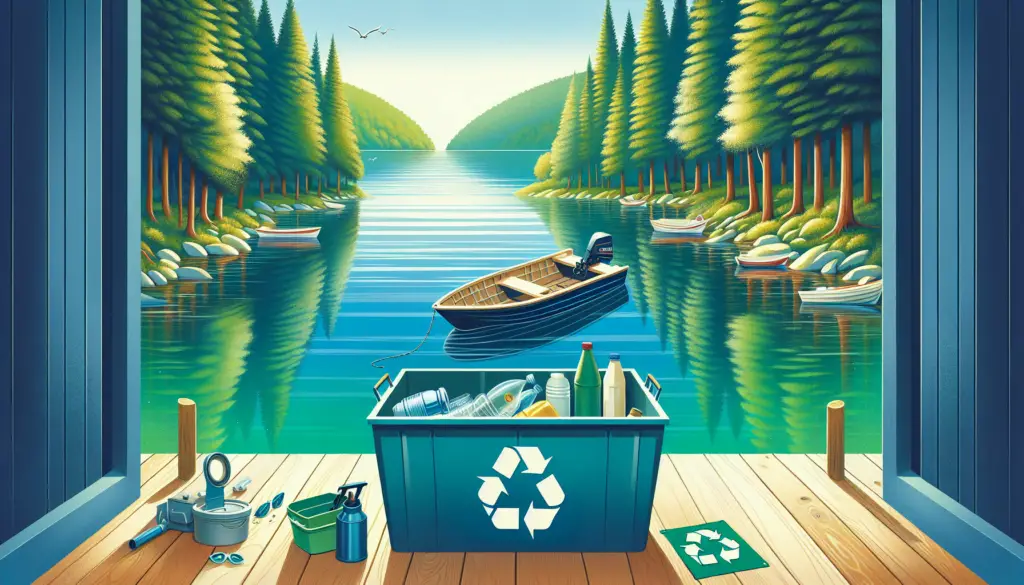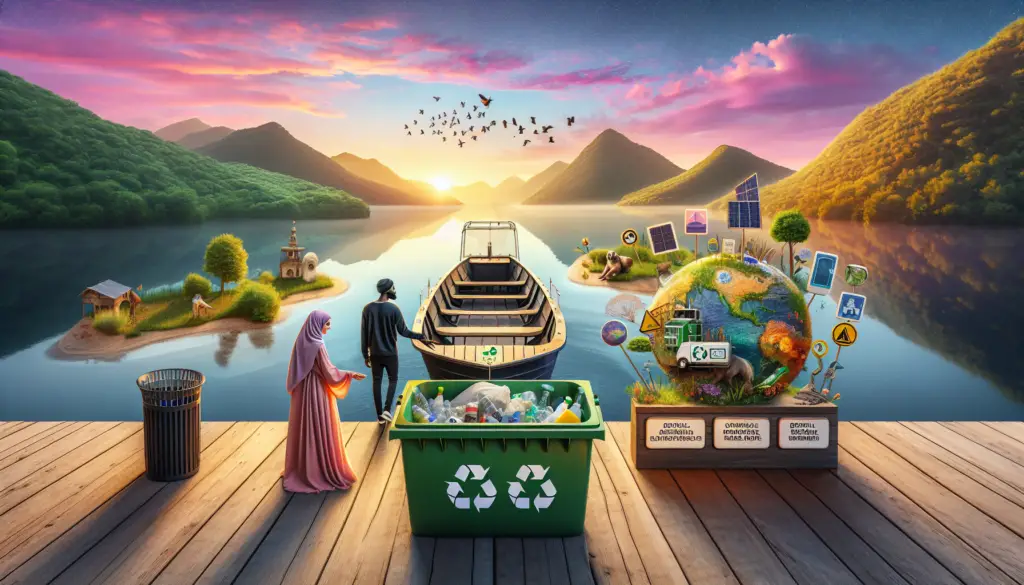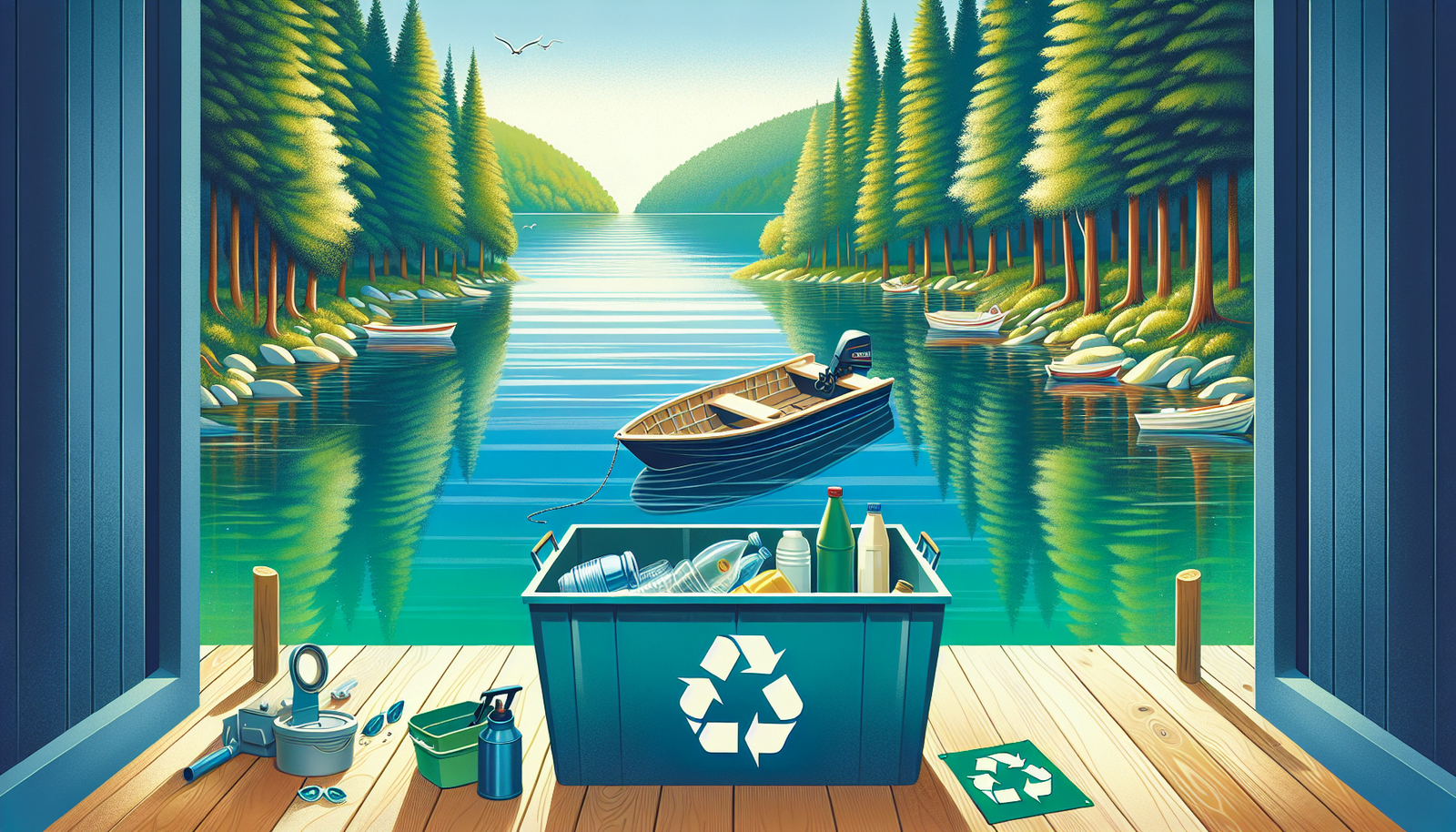Consider this: You’re a passionate boater, and you’ve always been intrigued by the intricate connection between nature and marine activities. However, you’re also aware of the stark reality – boating activities, when not managed responsibly, can have a detrimental impact on the environment. In the article “Best Ways To Educate Others On Environmental Conservation In Boating,” you’ll be armed with novel insights, practical strategies, and helpful techniques that demonstrate how you can efficiently and effectively promote environmental conservation to your fellow boating enthusiasts. Ready to assume your role as an advocate for boating conservation? Let’s set sail towards that goal!
Understanding the Importance of Environmental Conservation in Boating
Understanding environmental conservation is vital to being a responsible boater because the waterways we love directly rely on them. Essentially, it is all about preservation, protection, and restoration of the natural environment, including elements like flora, fauna, and natural resources.
Defining Environmental Conservation
In essence, environmental conservation is about making conscious choices to lessen our impact on the natural world. It means protecting and efficiently managing our resources and ensuring their sustainability for future generations. We have the power to protect and enhance our world, but it begins with a basic understanding of conservation and what it entails.
Why Environmental Conservation Matters in Boating
You might wonder, why does conservation matter specifically within the context of boating? Well, boating activities, done without regard for the environment, can have significant impacts on water quality, marine life, and overall ecosystems. Therefore, it’s crucial to understand the need for environmental practices in your boating activities.
Potential Impacts of Unsafe Boating on The Environment
Unsafe and irresponsible boating habits can lead to devastating consequences. Fuel leaks and discharge of untreated waste can degrade water quality. Disturbance to wildlife can affect breeding and feeding behaviors. Boat grounding can destroy sensitive habitats. These are just a few examples of the potential harm that can be done if boaters disregard environmental conservation.
Implementing Environmentally-Friendly Boating Practices
As a boater, you can make a significant contribution to protecting the environment by implementing eco-friendly boating practices. This involves using green products, managing waste effectively, and avoiding activities that could be potentially harmful to marine wildlife.
Using Eco-Friendly Fuels and Oils
One way to reduce your environmental footprint is to use eco-friendly fuels and oils, which are designed to produce fewer emissions. Plus, many green fuels have the added bonus of improving engine performance.
Opting for Energy-Efficient Equipment
Energy-efficiency is another key element of green boating. This could mean using solar panels or wind generators as alternative power sources. It could also involve using equipment that requires less power or choosing energy-efficient appliances for your boat.
Disposing Waste Properly
It’s imperative to understand that the ecosystem survives on a delicate balance. Improper disposal of waste can greatly upset this balance. Always ensure you dispose of waste according to the best practices, whether it’s sewage, trash, or other kinds of waste.
Avoiding Disruptions to Wildlife
Respect for wildlife is a fundamental aspect of environmental conservation. Being mindful of your activities in and around the water can help you avoid disruptions to wildlife. Remember, your boat is in their habitat, and their welfare should always be considered.

Utilizing Boating Courses for Environmental Education
Education helps promote understanding, and understanding helps inspire action. Including environmental topics in boating courses is an excellent way to raise awareness about laudable boating practices.
Incorporating Environmental Topics in Traditional Boating Courses
Most traditional boating courses primarily focus on safety and navigation but expanding these courses to include relevant environmental topics can significantly increase awareness among boaters. It could be about responsible fueling practices, understanding how to properly observe wildlife without changing their behavior, and so on.
Adding Eco-Friendly Boating Courses
Even more impactful would be offering dedicated eco-friendly boating courses. These could focus specifically on mapping out environmentally friendly practices, enforcing the importance of conservation, and providing actionable strategies for reducing environmental impact.
Essential Topics for Environment-centered Boating Courses
Important topics for eco-friendly boating courses could range from understanding the connection between boating and marine ecosystems, best practices for waste management on boats, how to respond to wildlife encounters, how to minimize fuel consumption, among others.
Creating Awareness Through Workshops and Seminars
Workshops and seminars can provide hands-on, experiential learning that can equip boaters with the skills and knowledge they need to be better stewards of the environment.
Organizing Seminars on Environmental Conservation
Seminars are effective platforms to discuss environmental conservation. Attendees can obtain valuable insights from experts in the field and they provide a great opportunity for networking and learning from each other’s experiences.
Conducting Practical Workshops
Practical workshops can provide boaters with hands-on experience and a deeper understanding of conservation practices. These could include sessions on green boat maintenance, handling and disposal of waste at sea, among many others.
Engaging Top Speakers and Conservationists
Having experienced speakers and conservationists at events can offer first-hand knowledge, lending credibility and encouraging participants to take the messages seriously. They can share their experiences, research findings, and conservation strategies with participants in a way that books and online resources might not be able to convey.

Influencing through Community-Led Initiatives
Community initiatives can foster a sense of collective responsibility and motivate individuals to become more active in environmental conservation.
Forming Eco-Boating Clubs
Eco-boating clubs provide an excellent platform for boaters to learn from each other, share their experiences, and collectively contribute to conservation efforts. Members can work together to promote eco-friendly practices within their community and beyond.
Community Clean-Up Drives
Community clean-up drives not only help to preserve local waterways but also raise awareness about the importance of maintaining clean surroundings. The group efforts serve as a motivator for individuals to continue such cleanliness drives.
Involving Boaters in Conservation Efforts
Involving boaters directly in conservation efforts can have a profound impact. Whether it’s participating in research projects, or simply promoting eco-friendly behaviours within their networks, boaters can play a vital role in enhancing marine conservation efforts.
Translating the Science Into Engaging Content
The science behind environmental conservation can sometimes be daunting to the less informed. However, there are ways to present these concepts in a more accessible and engaging way.
Making Data and Research Relevant to Boaters
To truly catch the attention of boaters, data and research need to be presented in a way that directly connects to their experiences. Show them, through facts, how their boating practices can impact their favorite waterways and motivate them to adopt better habits.
Using Visuals and Infographics
Visual presentations, like charts and infographics, can make complex information easier to digest. A well-designed visual aid can illustrate cause and effect relationships and make the stakes of poor environmental practices feel more real.
Storytelling and Personal Experiences
There is no doubt about the power of storytelling. Sharing personal experiences and narratives can help individuals relate to the importance of environmental conservation in a more intimate way.
Leveraging Social Media for Education and Awareness
With today’s digital world, social media is a powerful tool to reach a wider audience, promote education, and raise awareness about environmental conservation in boating.
Social Media Campaigns
Starting a campaign on platforms like Facebook, Instagram, and Twitter can raise global awareness about sustainable practices in boating. It’s about creating engaging and shareable content so that more and more people can get involved.
Online Education and Webinars
Webinars are valuable for in-depth discussions and comprehensive presentations on vital topics. Providing such an educational resource online makes it accessible to a broader audience. With social media, these can be promoted and shared widely.
Using Influencers for Greater Reach
Collaborating with influencers who are passionate about boating and the environment can help to amplify the reach of your message. They can inspire followers to adapt their behaviors and foster a greater commitment to environmental conservation.
Green Boating Certification and Recognition Programs
Recognition for efforts can greatly incentivize individuals to adopt green practices. Therefore, setting up recognition programs is an effective method to motivate boaters to be more environmentally conscious.
Establishing Certification Programs
Certification programs can validate a boater’s commitment to environmental preservation. It can set a benchmark for green boating practices and inspire others to meet these standards.
Benefits of Green Boating Certification
Green boating certification not only personally satisfies the boater but also serves as a public recognition of their commitment to conservation. This official recognition can inspire other boaters to follow suit and work towards a certification themselves.
Recognizing Eco-Conscious Boaters
Recognising the efforts of eco-conscious boaters can be highly influential. It fosters a sense of pride and achievement, making one more inclined to practice and promote green boating methods.
Partnerships for Promoting Environmental Awareness
Partnerships can multiply the effects of your environmental education efforts. Collaboration with conservation organizations, government agencies, schools, and other groups can help your message reach a wider audience and pool in more resources.
Collaboration with Conservation Organizations
Aligning with conservation organizations can strengthen your cause. These partnerships can provide you with additional resources, lend credibility to your efforts, and help with expert opinions.
Partnering with Local Government Agencies
Local government agencies can provide useful support in promoting your cause. They can help provide permissions, co-host events, and give official recognition to your efforts.
Working with Schools and Educational Institutions
Students and young adults are both the future and often the most receptive to adopting new habits. Collaborating with schools and educational institutions to carry your message can foster a sense of eco-friendliness at an early age.
Evaluating and Improving Your Environmental Education Efforts
Finally, it’s essential to constantly evaluate your efforts and look for ways to improve your outreach. Your work doesn’t end after initiating a program or campaign.
Collecting Feedback and Data
Feedback from your audience can provide valuable insights into how effective your strategies are. You could also concurrently collect data on environmental impacts to measure if and how your efforts are making a difference.
Identifying Areas for Improvement
Once you’ve collected feedback and data, it’s time to identify where improvements can be made. No strategy is perfect from the onset, and there are always opportunities for growth and refinement.
Celebrating Successes
Celebrating your successes is just as important as recognizing the areas for improvement. Recognizing your achievements, whether big or small, can serve as motivation to keep going and working hard on your environmental conservation efforts. They’re a testament to the change you’re creating, so take a moment to appreciate them.
In conclusion, boating and environmental conservation might seem like different arenas but intersect more than we think. Efforts towards educating others about the importance of eco-friendliness in boating can help preserve our water bodies and, in turn, the planet, creating a harmonious coexistence.

